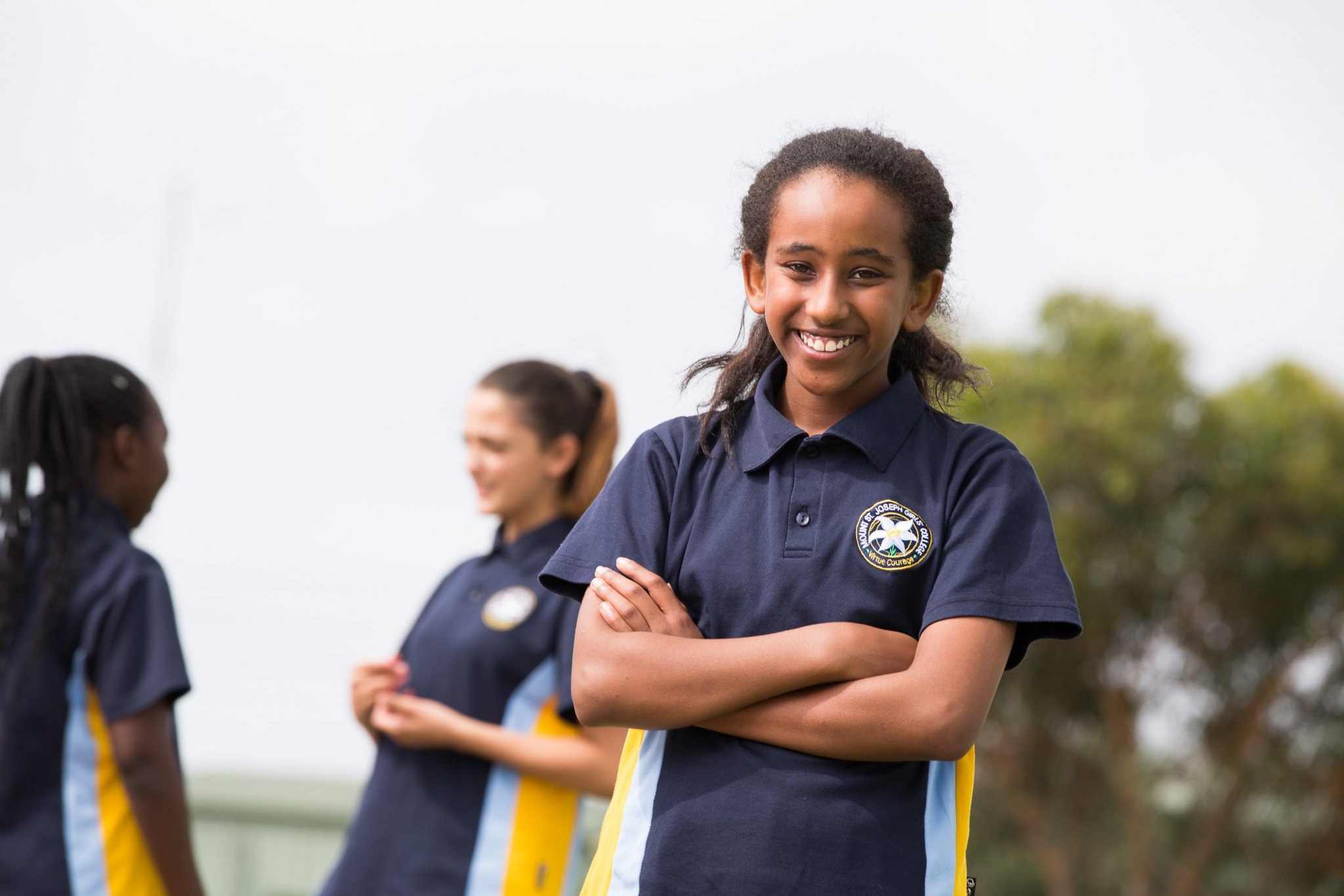Congratulations to our students and families who are working so diligently in these challenging times. I am so impressed by the many students who have displayed great resilience and tenacity in managing remote learning.
Creating connections and finding opportunities to celebrate the little joys in life are so important during these times. I have thoroughly enjoyed seeing my Year 11 English class and having the general chat during class and maintaining our relationship, as a group of learners. Last week, we all came to class and introduced our pets – I am so amazed to see the excitement and energy that pets can bring to the lives of our young people. Admittedly, our Labrador - Kevin, is loving the family being home and the additional walks he receives.
We need to acknowledge that the second round of remote learning and Stage Four restrictions is creating fatigue for some people. This month, l have included abridged articles from Beyond Blue which explore how mindfulness can support you during these times and another article from the E-commissioner which reminds students of the need to remain vigilant and safe while online.
Our College Wellbeing Leaders and the Student Services Team are still here to support you and your daughter during this time. Feel free to contact us. On the Parent Access Module (PAM), we have created a Knowledge Bank containing many links to support services in the College and to external agencies. Here is a full list of College Counsellors, Wellbeing and Learning Leaders.
How mindfulness can help during the coronavirus outbreak
In this article, provided by Smiling Mind, we look at how mindfulness can help during the coronavirus outbreak.
We are living through an unprecedented and uncertain time, requiring each of us to navigate our way, as best we can, through a rapidly evolving global health crisis. With things changing so quickly, such uncertainty and unpredictability can take a toll on our mental and physical health.
Managing our emotions and supporting each other can be challenging at the best of times. This is why, more than ever, we all need to be doing our best to regularly pause, take a breath and be proactive in looking after ourselves and others.
We know that this isn’t always easy, and we want to support you. In this article, you will find different practical things you can do to take care of your own wellbeing, as well as support the children in your life, your colleagues, loved ones and friends.
Mindfulness provides us with a means of cultivating greater and more objective awareness of our own emotional landscape, the emotions of others, and of external circumstance.
In doing so, it gives us more choice in how we respond to challenges we may face and the ability to more consciously choose where we place our attention.
Wherever you are in the world, we sincerely hope that you and your loved ones remain safe and healthy. In the words of one of our favourite meditation teachers: “Moment by moment we can find our way through” - Sharon Salzberg.
Fear, anxiety and denial
Acknowledging that feeling fearful and anxious at a time such as this is not only normal but appropriate. Given the nature of the threat we are facing, fear and anxiety are adaptive responses as they alert us to the fact that we need to be taking appropriate action to keep ourselves and others as safe and healthy as possible.
It’s also important to recognise that fear and anxiety can quickly escalate and reach a tipping point beyond which they are no longer helpful and can affect us in negative ways. When the acute stress response, otherwise known as the ‘fight or flight’ response, kicks in we’re not as able to think clearly or make good decisions; we become more reactive and less responsive, and our thinking can quickly spiral, becoming increasingly negative and difficult to unhook from.
Warning signs
Mindfulness helps us get better at recognising and understanding our own personal signals that tell us we’re close to our tipping point. We can think of mindfulness as being like our own personal ‘fear and anxiety thermometer’ helping us get to know our own warning signs and recognise them as they’re kicking in.
Examples include:
Beware denial
It can also be tempting to turn away from and deny the seriousness of what’s happening. Denial may be particularly appealing given the significant impact that this outbreak will have on so many people financially, emotionally or physically. While temporary distractions can be useful for giving our minds a break, on the whole denial is not a helpful approach. It can leave us vulnerable and exhausted as it may lead to not taking appropriate precautions and it’s difficult to sustain in the face of reality.
Healthy brain breaks
Giving your brain a break when you’re nearing your tipping point can be a helpful way of deactivating the acute stress (‘fight or flight’) response.
We recommend trying out the following as often as you need to:
Move
Any kind of physical movement is a great way of releasing the build-up of excess energy.
Breathe
When you slow your breathing rate down, the uncomfortable physical sensations of fear and anxiety start to subside. Try the following:
Ground
Connect to what is happening in this moment right now more consciously engaging your senses. Try the following:
Sleep
When we’re fearful and anxious, it can be hard to sleep. Given the importance of sleep for our mental and physical wellbeing, including immunity, establishing good habits around sleep is particularly important at the moment.
Connect
We are fortunate to have so much technology at our fingertips enabling us to stay connected to family, friends and colleagues. Try using video conferencing technology so that you can see each other, as we communicate best when we can see each other’s body language and facial expressions.
Contribute
Contributing to the wellbeing of others helps shift our attention from ourselves onto what we can do for them. This helps us connect with others; gain a sense of agency, even if only in a small way; plus helping others also positively impacts our own wellbeing.
Consider how you might help others at this difficult time. For example, you could support a local business you value that is likely struggling at the moment or check up on an elderly friend or relative.
For general information about looking after yourself during the coronavirus outbreak, visit Beyond Blue's dedicated page here.
If you need assistance, visit Beyond Blue’s support services. Our mental health professionals are available 24/7 on 1300 22 4636, Web chat (3pm-12am AEST) and email (responses within 24 hours).
For immediate support call Lifeline on 13 11 14 and in an emergency, always call triple zero (000).
Cyberbullying happens when someone uses digital technology to harass, humiliate, intimidate or threaten another person. Cyberbullying can happen in online classrooms, on chat and messaging services, by social media, text messages, emails and message boards, or in online forums.
Social exclusion is also a form of cyberbullying. It includes being left out of online conversations, virtual parties, games with friends or other get-togethers — not cool right? — and while face-to-face contact is restricted, it may feel particularly bad. We all want to feel connected and know there’s someone we can talk to.
Extra time spent online increases the risk of being exposed to cyberbullying and this can impact our mental health and wellbeing. But cyberbullying is often an extension of the bullying that happens at school. So there’s a chance that heading back to face-to-face classes will be unsettling or upsetting, if there’s a risk of having to deal with a rise in negative behaviour.
So, what can you do if you come across cyberbullying or if you see people being excluded from online group activities?
Continue to go gently and to capture the slowness of this new time, because before we know it, the pace may change.
With every blessing,
Steven Mifsud - Deputy Principal Student Wellbeing






